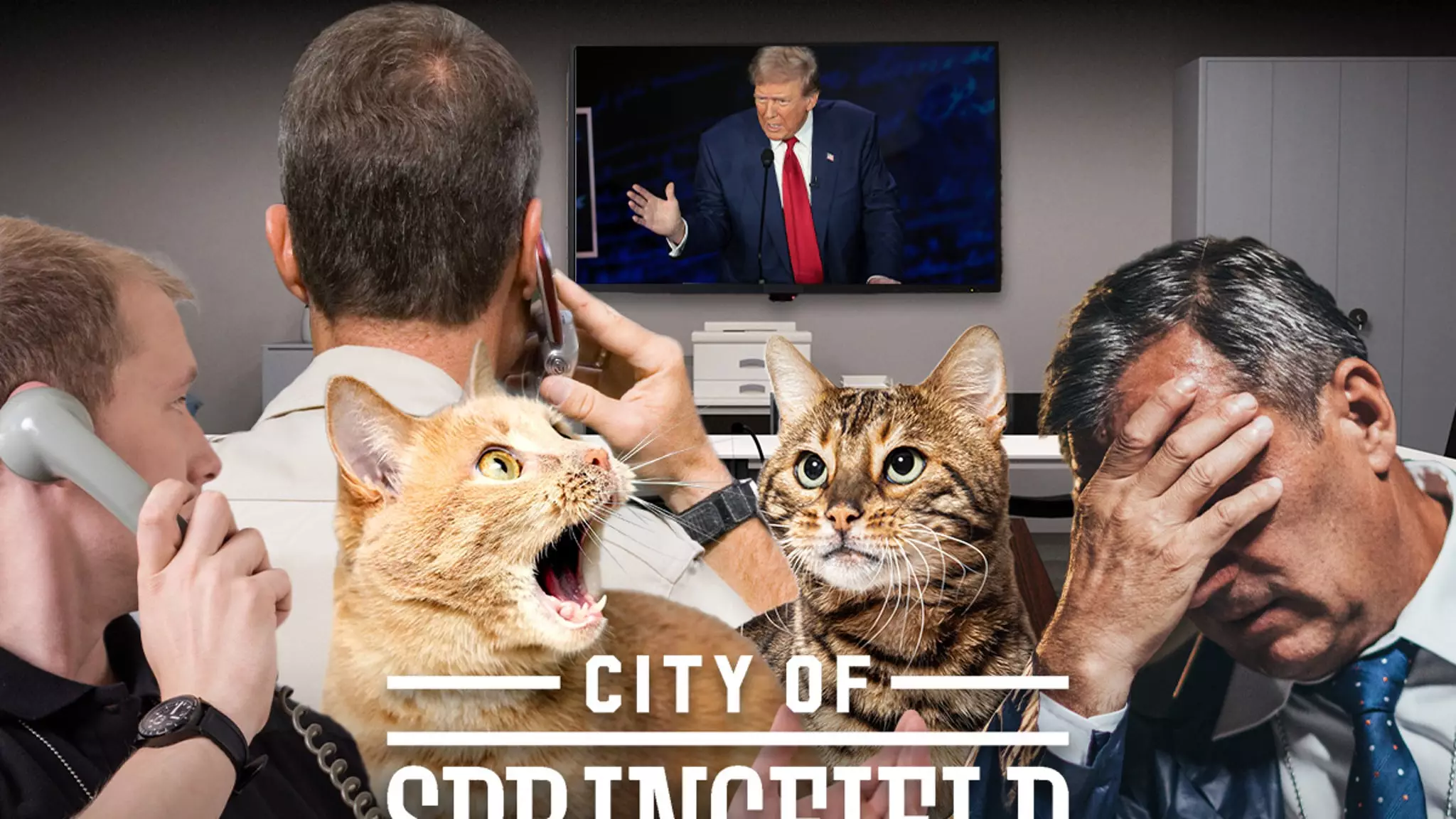In an age defined by swift information dissemination, the influence of prominent figures can have far-reaching consequences. Recently, former President Donald Trump ignited a storm of controversy by promoting a conspiracy theory alleging that Haitian immigrants in an Ohio town were consuming pets, specifically cats and dogs. The ramifications of this unfounded assertion have been significant, resulting in an overwhelming influx of calls to the Springfield Police Department. This issue underscores how misinformation can divert law enforcement’s attention from critical and real-life crises to responding to baseless fears.
Following Trump’s controversial statement, the Springfield Police Department has witnessed a dramatic surge in daily inquiries—twice the usual volume, which was already substantial. Residents from far beyond Springfield, fueled by concern and outrage over the supposed threat to their pets, have inundated law enforcement with questions regarding the veracity of Trump’s claims. This deluge of calls has placed immense strain on police resources, hampering their ability to respond effectively to genuine incidents occurring within the community. Officers are now faced with the absurd distraction of addressing conspiracy-laden fears instead of focusing on actual crimes.
In a notable instance during a debate, moderator David Muir took it upon himself to fact-check Trump’s wild accusations. Muir quoted a city official who firmly stated that no pets had been harmed in Springfield. Yet despite this reassurance, misinformation continued to proliferate, demonstrating a troubling trend: the public’s susceptibility to sensationalized narratives. Furthermore, Trump Jr.’s attempt to validate the claims with an anecdote about a caller reporting Haitian migrants carrying geese only adds to the absurdity—he selectively ignored context and factual accuracy, further fanning the flames of hysteria.
It’s crucial to underscore that while sensational theories can incite public outrage, they often distract from the real issues within a community. In a recent, unrelated case, a homegrown Ohioan was arrested for the alleged killing and consumption of a cat, illustrating how complex societal issues require earnest focus from law enforcement. Meanwhile, the Haitian community, painted unjustly as threats, faces the fallout from these fabricated fears, culminating in a harmful stigma without any foundation.
The ongoing episode emphasizes the urgent need for responsible communication and the impact of rhetoric from influential figures. As our society grapples with the challenges posed by misinformation, it is vital that both the public and media practice discernment. The Springfield case reminds us that conspiracy theories hold the power to disrupt lives and impede vital public safety channels. Moving forward, communities must prioritize the truth and encourage dialogue rooted in fact, aiming to reduce the incidence of panic arising from unfounded theories. A vigilant, informed society is equipped to confront realities rather than chase phantoms created by baseless claims.

Leave a Reply